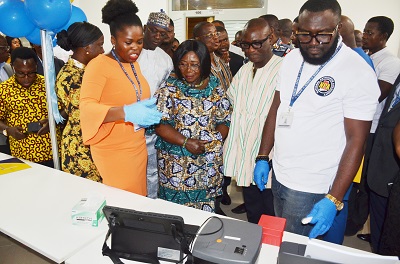
The National Petroleum Authority (NPA) yesterday, launched the second phase of its Petroleum Product Marking Scheme (PPMS) that is used to clamp down on adulteration of petroleum products and address revenue leakages.
Introduced in 2013, the system, involves the use of a bio-chemical liquid (fuel marker) into the petroleum products at the loading depots prior to delivery of the products to the retail outlets.
The marker aids in distinguishing various petroleum products and reveals additions, if any, of foreign products when samples of the products are tested with analytical devices.
Addressing industry players at the ceremony in Accra, the NPA Chief Executive Officer, Alhassan Tampuli said, the PPMS Phase II, introduced in April 2019 had improved markers backed by advanced technology to achieve optimal results.
For instance, he said, monthly field monitoring at least 75 per cent of retail outlets nationwide were conducted with hand held equipment that stored data in an encrypted with restricted access and gave precise results.
He said contaminated fuel had a negative impact on the environment, causes costly damage to engines and losses to both individuals and the state for which reason the authority would not compromise on quality.
According to Mr Tampuli, the collaborative efforts of the NPA and security agencies had led to reduction in supply leakages and warned that the authority would not relent in clamping down on wrong doing.
He hinted that soon the licenses of oil marketing firms that failed the marking test two times would be suspended because of the losses being caused by the adulteration of petroleum products.
The Chief of Staff, Madam Frema Opare said an assessment, carried out in May to June 2013 revealed an estimated government revenue loss in excess of 50 million cedis in the form of lost tax revenue and “diverted” subsidies on “social” products.
As a result of sustained marking and field monitoring, she said the results obtained from September 2013 to December 2019, indicated a drop in the rate of violations from 32 per cent to 1.99 per cent and an estimated revenue recovery of GH¢249 million as at the end of 2018 in tax revenue.
“I am confident that this scheme will continue to help stamp out deceitful dealers who supply substandard fuel to consumers and will give Ghanaian consumers the assurance that they are getting value for the money for the petroleum products they purchase.”
BY JONATHAN DONKOR







